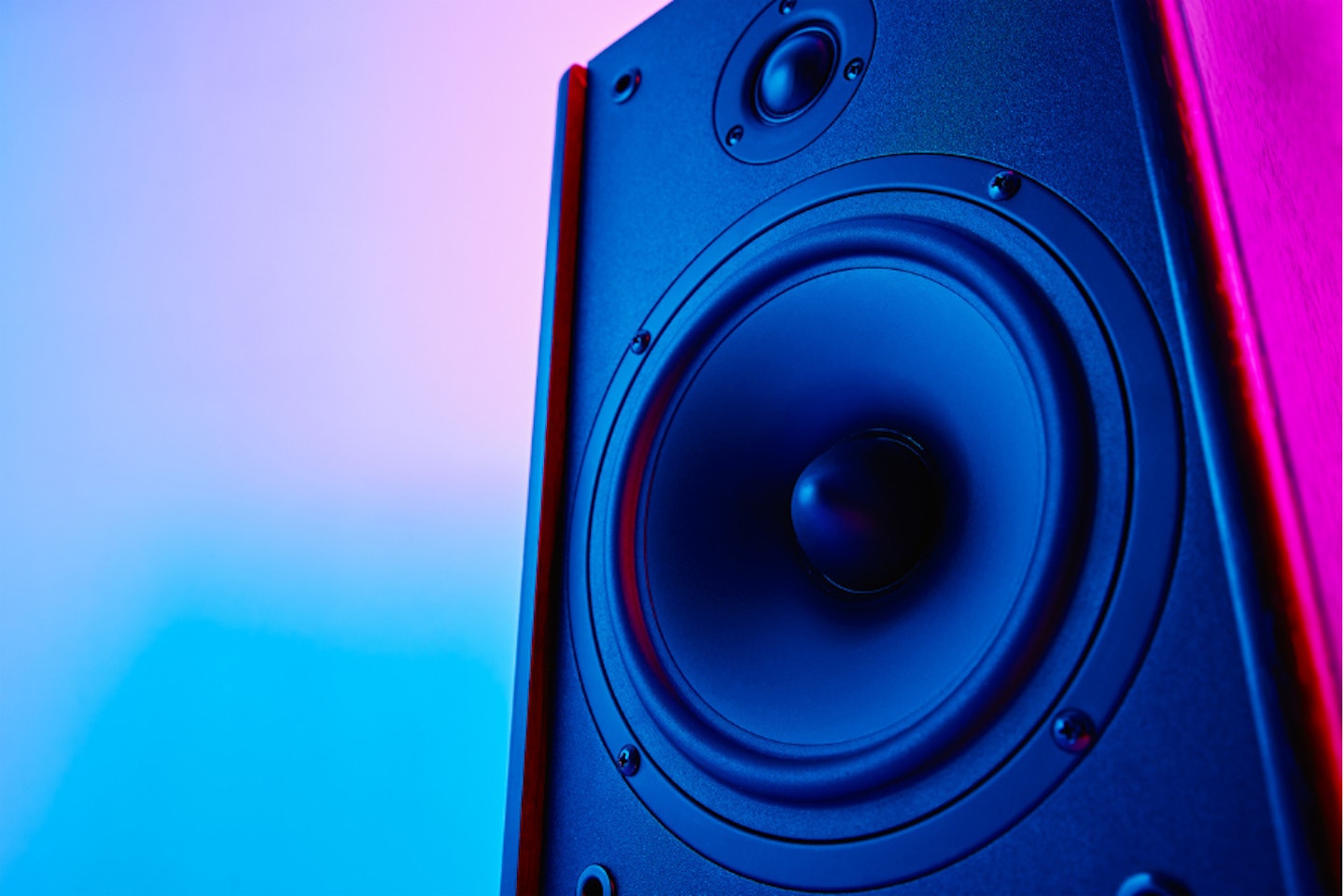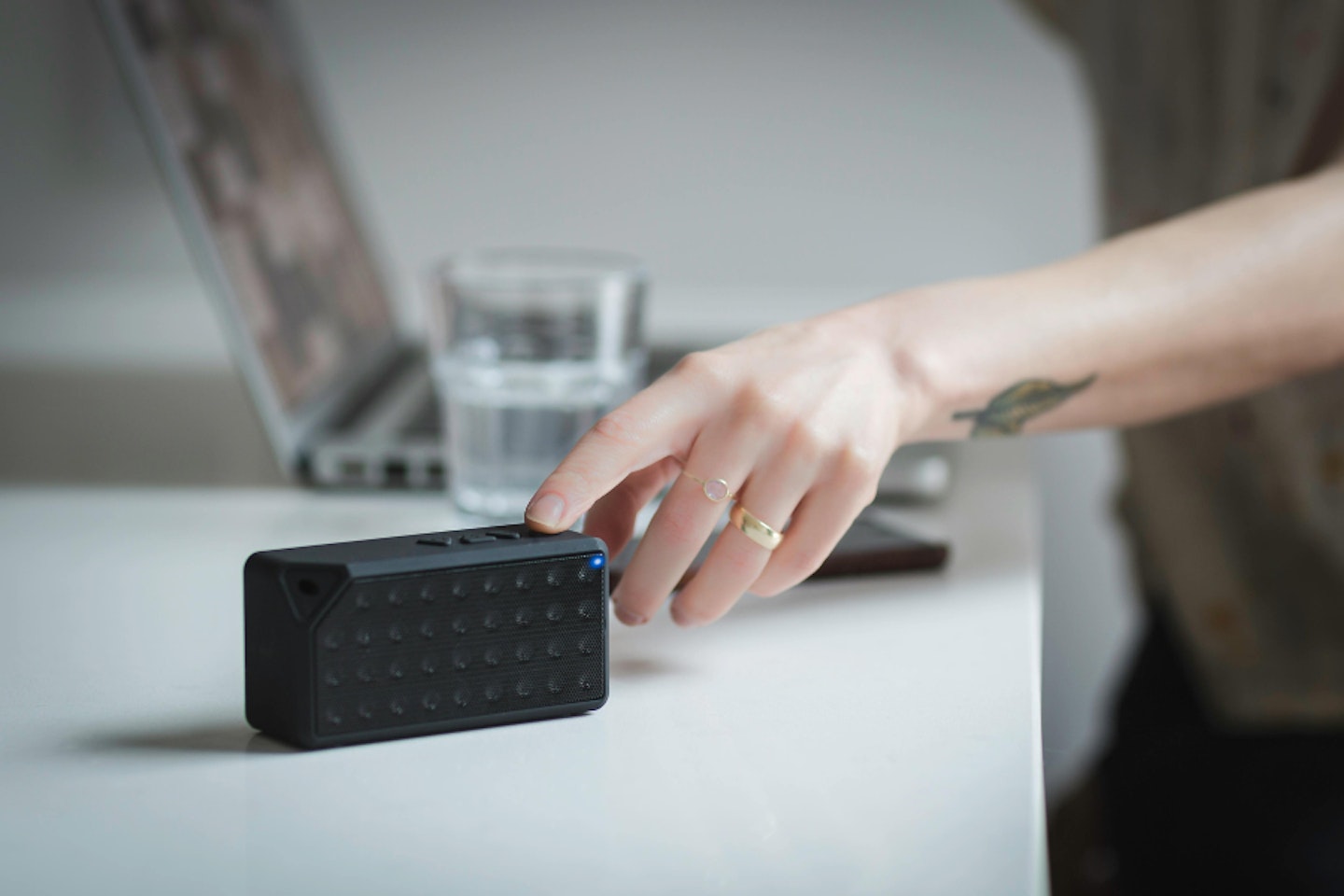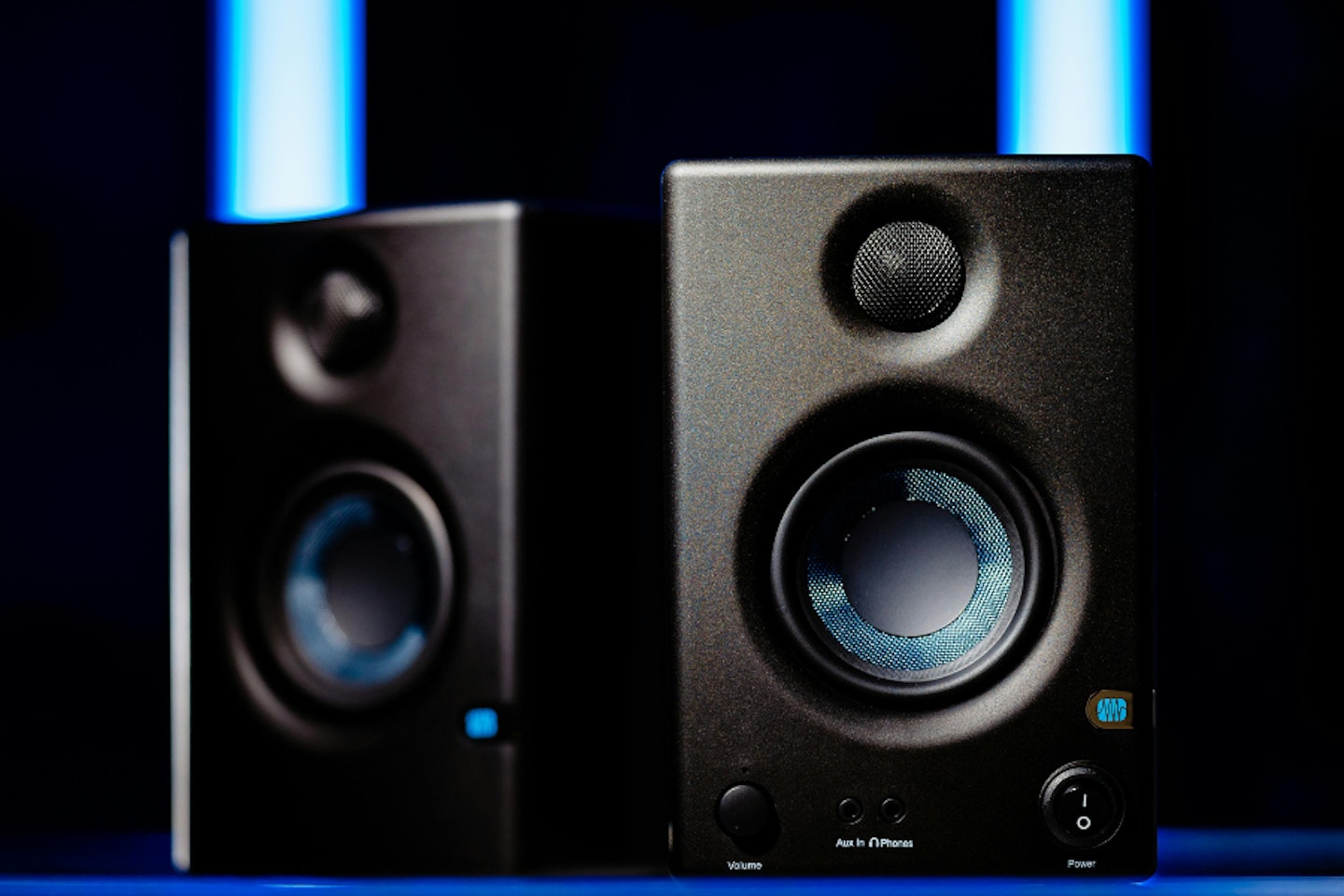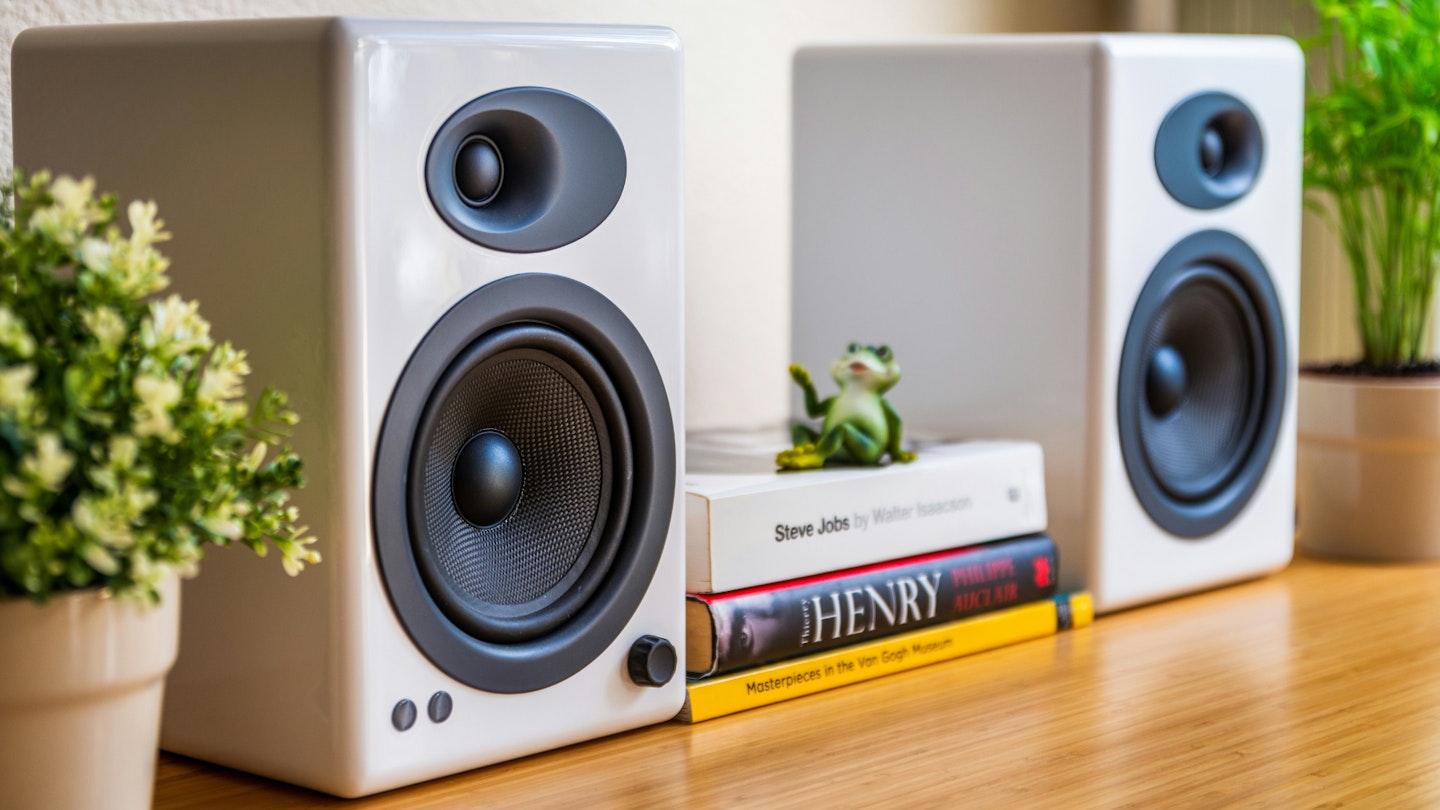Picking the best speakers for you can be something of a challenge: whether it's bass, clarity or portability you're looking for, sorting through the hundreds of speakers on the internet is rarely straightforward.
A gorgeously slick, matte design can be dazzling to the eye, but if it doesn't offer quality specifications, you're not going to be getting your value for money whatsoever. Ignore a brand's reputation, the glossy aesthetics and the promise of deep, rumbling bass, and find something that is absolutely perfect for your listening experience.
At What's The Best, we're keen on assisting your tech journey, and what better way can we assist you in teaching you some of the basics of speaker shopping?
This guide is going to be breaking down some of the core technical specifications you should be looking out for in your speakers, and what elements you should value if you're looking for something specific. That is, if you're aiming to elevate your TV speaker setup, keen to find something impressive for a party, or need a cheap deal, we'll show you the ins and outs of speaker shopping, so you're getting exactly what you pay for.
Bass: how do I know if a speaker will have plenty of it?

Bass in a speaker simply refers to the lowest pitch notes in music. These ultra-low frequencies drive rhythm across music genres, whether its dance, electronic or classic rock n' roll.
Great bass enrichens music, uplifting what typically is plain sound into something special, but how exactly do you know if a speaker is going to have it?
There are a few factors which greatly improve bass, here are the most important to look out for:
Audio Output Power:
A speaker's audio output power is an indication of how much electrical power a speaker can receive to produce sound. There are two measurements to consider when looking at audio output power:
RMS: Root Mean Square, or RMS, refers to a speaker's average power level it can receive continuously. This gives users a better indication of the typical power a speaker is capable of.
Peak power: Peak power is the absolute limit of electrical power a speaker can receive, typically in short bursts, before incurring damage. Peak power is not sustainable for a speaker.
A high audio output power generally indicates that a speaker will have strong bass, as well as high volume.
This isn't exactly true all the time, however, even some small speakers may have high audio output power. However having a small enclosure can indicate less potential for bass on account of their smaller subwoofers and less space for air displacement.
More air displacement becomes more air pressure, which, therefore, creates a louder sound and better bass overall.
Low-frequency response:
When looking for a top-quality speaker, frequency response is a vital part of picking a great speaker. The frequency response range is a speaker's ability to create a range of sounds perceptible to the human ear.
Humans can only detect sounds between 20Hz-20KHz, so covering this frequency range indicates a highly accurate speaker.
A good low-frequency response indicates that a speaker can accurately recreate low, bassy sounds, therefore giving you exceptional bass. But to utilise this powerful bass, you'll need plenty of output power and a decently sized enclosure, which can be difficult to find amongst budget speakers, but not impossible.
For better sound: go bigger, you'll thank us later.
Treble: what makes a speaker good at it?
Treble constitutes high-frequency tones ranging from 6-20KHz, and are produced in a wide range of music. Having great-sounding treble gives speakers clarity and definition, there are no details lost when playing music and the sound is most importantly accurate.
High-frequency response:
As we've already mentioned, the audible frequency response range is between 20Hz-20KHz, so if a speaker can recreate this as closely as possible, you're going to have excellent treble.
But for the best treble, being able to create higher frequencies is most important.
Speaker sensitivity:
Whilst a speaker may have a great RMS audio output power, great sensitivity indicates that a speaker is efficient and capable of converting all of that audio power into sound.
Typically, speakers have a sensitivity level of 86dB, which is plenty for a dynamic, high-treble sound, but isn't exceptional. For superior sound, a sensitivity above 90dB is exemplary.
Picking a budget: how much do I need to spend?

Selecting a budget for your speakers is a great way of setting your expectations on what kind of sound you're looking for.
Are you looking for enough sound to fill a room or a dance hall? Or better yet, are you looking for a singular source of sound, or for a full-encompassing surround sound?
When shopping for the best speakers in your price range, it's important to manage your expectations. Yes, there are some truly exceptional Bluetooth speakers under £100, but they're not going to offer the monumental sound that a pricier speaker might bring.
If you're looking for exceptionally good sound out of a Bluetooth speaker, set your budget to at least £150. That way, you've got some great choices from top brands such as JBL, Bose and Sonos that'll offer excellent, balanced sound with plenty of volume.
For multi-speaker setups, however, especially for those looking to build their home cinema setup, look at setting your budget to at least £200. Yes, there are multi-speaker setups with great sound for under this price, but for those looking for exceptional sound, among other excellent features, you'll need to spend a little more.
What are the minimum requirements for excellent sound quality?
Great sound quality in a speaker comes down to a multitude of factors and is also entirely dependent on what type of speaker you're looking for, here are a few speaker types and what to look for to ensure you're getting good value:
Portable Bluetooth speakers:
Great Bluetooth speakers are hardly a rarity anymore. There are plenty of great Bluetooth speakers for sound quality on the market, as well as plenty of solid options that are particularly cheap.
Audio output power:
Most Bluetooth speakers have an audio output power of around 15-30W, which is great for indoor listening, and mostly solid for outdoor use. When it comes to overall audio output, the higher the better. There are plenty of great budget Bluetooth speakers online, but most cheaper models have around 5W, which just isn't going to provide the exceptional sound quality you're looking for.
Search for high audio output, optimally around 30W, and you're far more likely to have that next-level sound experience you've been looking for.
Frequency response range:
A great frequency response range is not only good for generating plenty of bass, it also helps to create a true-to-life sound where no detail is lost in the mix. A frequency response range between 20Hz-20KHz is going to give you phenomenal sound, but most speakers even at higher prices can't quite capture this entire spectrum.
Instead, look for a minimum of 60Hz for low tones, and 20KHz for high tones, that way you'll get a full sound that doesn't butcher your favourite music.
Bluetooth version:
Bluetooth technology has been slowly advancing over the years, improving data transfer speeds and connection ranges, but it can be difficult to know what version you need.
Bluetooth 4.2: Perhaps the most basic Bluetooth right now, but a dependable version nonetheless, Bluetooth 4.2 has been around for over 10 years and offers good 1Mb/s data transfer speeds. It also has a solid range of 60 metres, so you can comfortably wander off from a party and not annoy your guests.
Bluetooth 5.0+: If you can get Bluetooth 5.0 within your speaker budget, you definitely should. It's double the speed of a regular Bluetooth speaker and offers quadruple the connection range of a typical Bluetooth 4.2 speaker at 240 metres.
There are later versions that have incremental changes such as quicker device connection, but having anything above Bluetooth 5.0 is a great way to enjoy a high-quality listening experience.
Size:
The overall size of the speaker greatly impacts its ability to push air, creating sound pressure and therefore high volume. A larger speaker means better sound, but here's where you should consider how practical you want your speaker to be.
If you're looking to bring your ideal Bluetooth speaker over to a friend's house, a 20kg unit might be a little overkill. Instead, balance the need for great power with practicality, choose something smaller at the cost of less volume, and your back will thank you for it.
Wired speakers:

On account of their need to be plugged in, wired speakers generally offer much more for their price than Bluetooth speakers, and are by nature larger and more robust, which offers greater sound quality.
If you're choosing a wired speaker option, you might want to opt for a multi-speaker setup to pair with a TV, or just a standard unit to sit desk-side, nonetheless, there are some factors you must consider to ensure you're getting a great deal.
Audio output power:
With a dedicated mains power supply, wired speakers can afford to go even higher with their audio output: look for wired speakers with at least 25W of audio output, and you'll have a sound that is full, bassy and satisfying to listen to.
Many wired speakers have an audio output power of 80-100W, which is only going to heighten your listening experience. Multi-speaker setups should have an even higher audio output power, at least a minimum of 40W of audio output power, but upwards of 250W for five-channel surround sound setups will provide exceptional sound.
Frequency response range:
Of course, when using wired speakers, you're only going to want the best sound quality: getting as close to the full human frequency response rate (20Hz-20KHz) is going to be ideal for terrific sound, but a minimum of 60Hz-20KHz is a reasonable range to garner brilliant sound.
Connectivity:
The best wired speakers aren't only wired, they incorporate a multitude of options for greater connectivity, giving you plenty of options for a versatile setup.
Having ports for optical cables, AUX cables, and even banana plugs will give your speaker setup much more optionality in the future, so having a diverse range of choices is optimal.
Having access to Bluetooth is also incredibly useful, it eliminates the need for further wires and keeps options for connectivity to newer devices without 3.5mm audio cables on them.
Size:
Depending on your plans for the speakers, having speakers on the larger side is always a good thing. Heavier, larger speakers have plenty more space to produce air distortion and therefore greater volumes with better sound. Not to mention larger cones, subwoofers and tweeters.
If you're short on space, or you've got noise-sensitive neighbours, go for something more economical. Otherwise, go big or go home.
Ryan Houghton is a commercial content writer for What’s The Best, known best for his expertise in gaming, with a particular soft spot for PC gaming, audio tech, televisions and smartphones.
Diligently writing for What’s The Best for almost two years, there are very few tech products Ryan hasn’t had his hands on to review; televisions, headphones, folding phones and even LEGO, if it’s nerdy, he’ll be there.
His well-versed history as one of the resident techies at What’s The Best has kept him keen to uncover the very best deals, savings and offers for those in need of a cracking deal to upgrade their setup.
In his downtime, Ryan most likely has his nose buried in a fantasy book, or his eyes glued to a screen whilst playing a tough-as-nails Soulslike or leisurely RPG, indulging in most forms of escapism where possible.
Subscribe to the What’s The Best Newsletter to keep up to date with more of the latest reviews and recommendations from the rest of the What’s The Best team.
